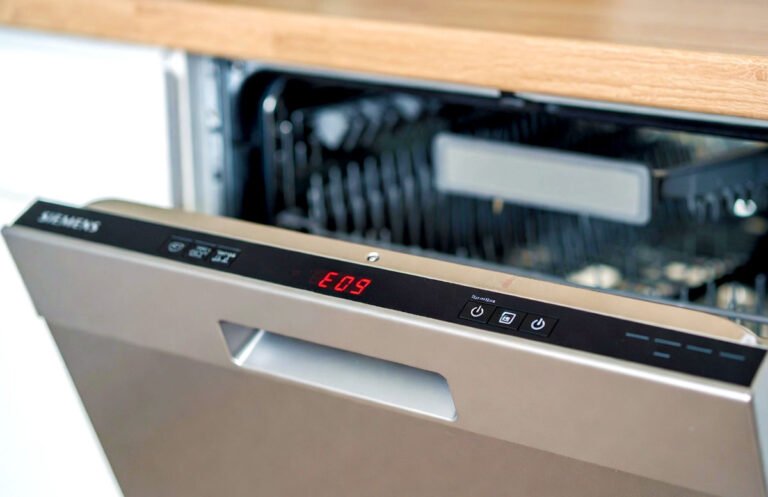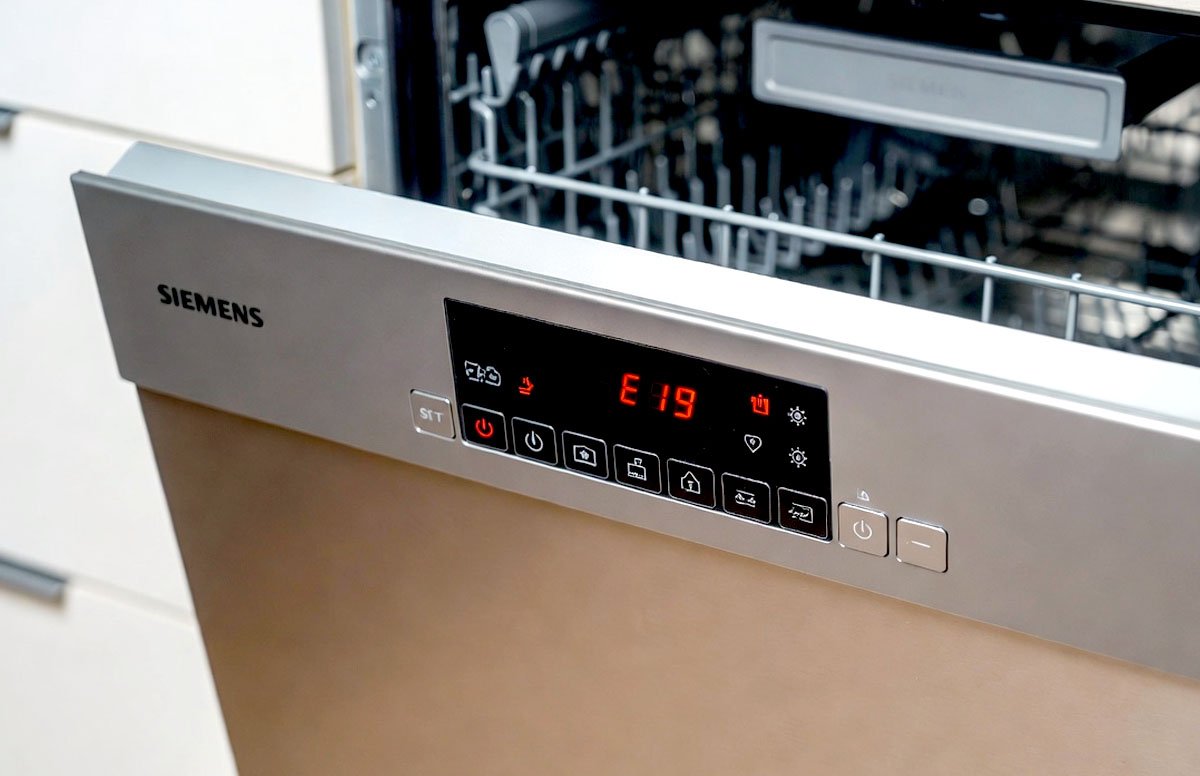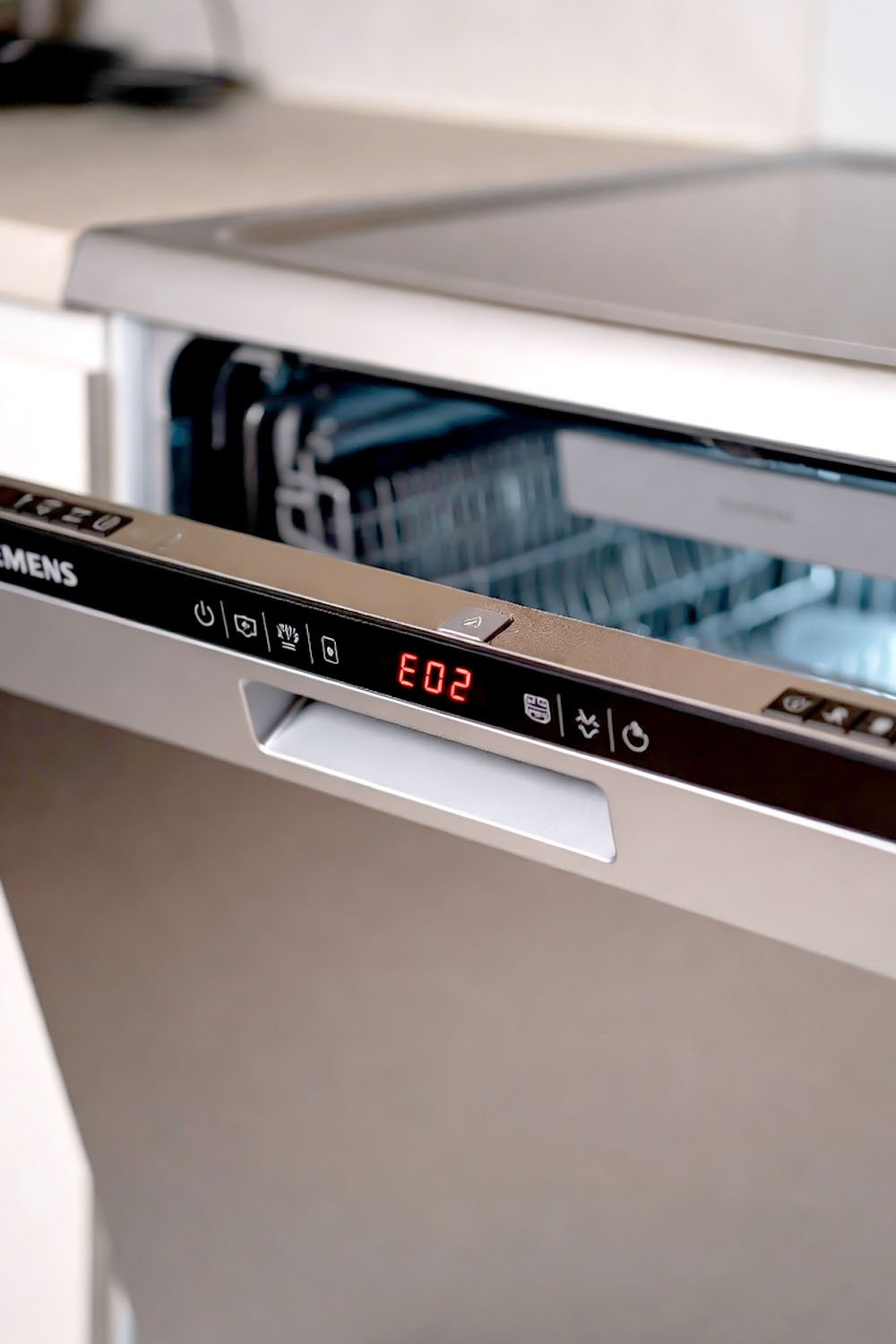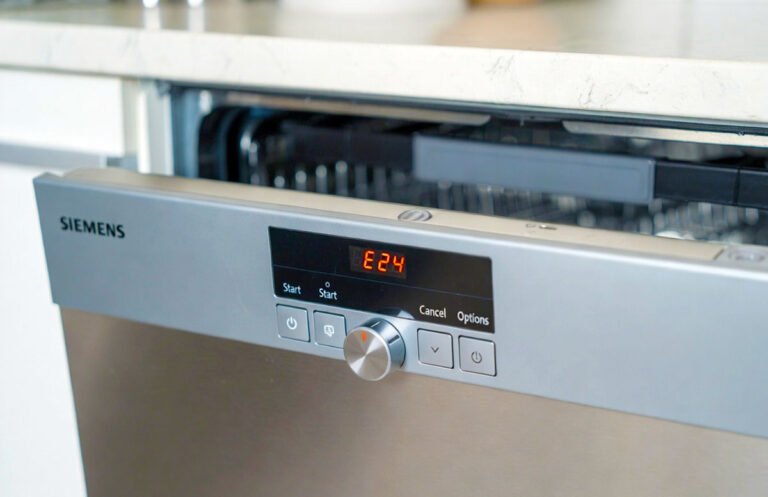As an Amazon Associate, I earn from qualifying purchases at no extra cost to you.
How Long Does a Dishwasher Run? Expert Advice and Tips
Have you ever wondered why dishwashers take so long to finish? If you’ve ever stared at your dishwasher waiting for it to be done, you’re not alone. Whether you’re trying to figure out how long it takes for your dishwasher to clean your dishes or you just want to understand why some cycles are faster than others, this article is for you. Let’s dive into how long dishwashers run, what affects the time, and some tips to speed things up.
Factors That Affect Dishwasher Run Time
Dishwashers don’t all work the same way. There are many factors that can affect how long a dishwasher takes to run. Understanding these factors can help you manage your expectations and even improve the way your dishwasher works.
Type of Dishwasher
One of the biggest factors that affect how long a dishwasher takes is the type of dishwasher you have. There are different types, and each has different run times. For example, older dishwashers often take longer to clean dishes than newer ones. Modern dishwashers tend to be more efficient, using less water and energy while still getting your dishes sparkling clean.
Another important factor is whether your dishwasher is a built-in model or a portable one. Built-in dishwashers are usually faster because they are connected directly to your home’s plumbing system. Portable dishwashers may take longer because they rely on a manual water hookup.
Wash Cycle Settings
Dishwashers come with different cycle options, and each one can affect how long the wash takes. Most dishwashers offer a few basic cycle settings like Normal, Heavy, Quick, and Eco. Here’s what they mean:
- Normal Cycle: This is the most common setting and takes about 1.5 to 2 hours. It’s a balance between cleaning power and energy usage.
- Heavy Cycle: Used for dishes with heavy dirt or grease. This cycle often lasts between 2 to 2.5 hours or more.
- Quick Cycle: This setting is for lightly soiled dishes and can be as fast as 30 minutes to 1 hour. It uses less water and energy.
- Eco Cycle: This option is designed to save water and energy but can take a bit longer. It usually lasts 2 to 3 hours.
Water Temperature
The temperature of the water your dishwasher uses also plays a big role in the cleaning process and the time it takes to complete a cycle. Most dishwashers are designed to heat the water to around 120°F (49°C), but the hotter the water, the more effective the cleaning. This can also increase the run time. If you have a dishwasher with a built-in heater, it may take extra time to heat the water before the cleaning cycle begins.
Water Pressure and Flow
Water pressure is another important factor in how long a dishwasher takes. If the pressure is low, it can take longer for the dishwasher to fill up, clean, and drain the water. Dishwashers with stronger water flow are usually able to finish faster. If you’ve noticed that your dishwasher takes longer than usual, it might be because of water pressure issues. Ensuring your home’s plumbing is in good condition can help avoid delays in dishwasher cycles.
Dish Load and Arrangement
How you load your dishwasher and the amount of dishes you put in it can affect the run time as well. Overloading the dishwasher or arranging dishes poorly can cause the water to not reach every dish properly, which may require the dishwasher to run longer to make sure everything gets cleaned. If you want to make sure your dishwasher runs efficiently and at the proper time, try to load it according to the manufacturer’s guidelines.
Dishwasher Maintenance
A dishwasher that isn’t cleaned regularly may take longer to wash dishes. Things like food debris, grease, or hard water deposits can slow down the dishwasher’s performance. If you notice your dishwasher is taking longer than usual, it might be a good idea to clean the filter, spray arms, and the interior. Doing this can ensure the water flows properly and speeds up the cycle time.
Average Dishwasher Cycle Lengths for Different Models
Not all dishwashers are created equal. Depending on the model and the brand, your dishwasher may have different cycle times. While some models are built to clean quickly, others might take longer but deliver more thorough results. Let’s break down what you can expect based on the type and age of your dishwasher.
Older Dishwashers
Older dishwashers, especially those that were built before the 2000s, typically have longer cycle times. These dishwashers can take anywhere from 2 to 3 hours for a normal cycle. They may not be as energy-efficient as newer models, which means they often use more water and take longer to complete a wash cycle.
Many of these older models don’t have the technology to adjust their cycle times based on the load or how dirty the dishes are. That means even if you have just a few dishes in the washer, the cycle will still take a similar amount of time as it would for a full load.
Newer Dishwashers
In contrast, newer dishwashers have improved efficiency and can often finish in a shorter amount of time. Many newer models offer cycles that last around 1 to 1.5 hours for a normal load. They also have features that help them adjust to the load size, which helps reduce the time needed to wash dishes. Some advanced models also use less water, making them more environmentally friendly while still cleaning effectively.
High-End Dishwashers
High-end dishwashers, particularly those with additional features like a third rack, smart controls, or extra cleaning modes, tend to have longer run times. These dishwashers may offer a range of cycles that can go from 1 hour to 2.5 hours depending on the cleaning setting you choose. These machines often include powerful jets, multiple wash arms, and various sensors that ensure your dishes are spotless. As a result, they take longer to complete each cycle, but they may clean more thoroughly.
Eco-Friendly Dishwashers
Eco-friendly dishwashers are built with water and energy conservation in mind. While they are great for the environment, these dishwashers can take longer to finish a cycle. On average, an eco-friendly dishwasher cycle can last anywhere from 2 to 3 hours. The extended time allows the dishwasher to use less water and energy while still cleaning the dishes effectively. Eco-friendly dishwashers are great for people looking to reduce their environmental footprint.
Tips to Speed Up Your Dishwasher’s Run Time
While most dishwashers run at their own pace, there are a few things you can do to help speed up the process. If you’re tired of waiting for your dishes to finish washing, try these tips to get faster results.
Use the Quick Wash Cycle
Many dishwashers offer a quick wash cycle that’s designed to wash lightly soiled dishes in less time. This cycle usually takes anywhere from 30 minutes to 1 hour, making it perfect for washing a small load of dishes. Just keep in mind that the quick wash cycle isn’t great for heavily soiled dishes, so it’s best used when the dishes are just a bit dirty.
Avoid Overloading the Dishwasher
When you overload your dishwasher, it can cause the water to not reach all the dishes properly. This may result in longer wash times or the need for a second cycle. By loading your dishwasher according to the manufacturer’s instructions and making sure dishes are spaced out properly, the water can reach everything more easily, and your cycle time may shorten.
Clean the Filters Regularly
Dirty filters can slow down the dishwasher. Make sure to clean the filter regularly to keep your dishwasher running smoothly. A clogged filter can cause the dishwasher to run longer or not clean dishes properly. Most dishwashers have easy-to-remove filters that can be cleaned with warm water and mild soap.
Use Hot Water
Running your dishwasher with hot water can reduce the time it takes to heat up the water. Check your water heater settings and make sure they are high enough to provide hot water. The ideal temperature for dishwasher water is around 120°F (49°C), so if your water heater is set too low, it might take longer for the dishwasher to get up to the right temperature.
Choose the Right Cycle
Selecting the right cycle is key to saving time. If your dishes are lightly soiled, use the quick wash cycle. For regular loads, use the normal cycle. For heavily soiled dishes, choose the heavy-duty cycle. By choosing the right cycle for your needs, you can avoid unnecessary wait times.
Maintain Your Dishwasher
A well-maintained dishwasher runs more efficiently. Make sure to clean the spray arms, check the water inlet valve, and ensure that the drain isn’t clogged. These maintenance tasks can help reduce the overall run time of your dishwasher.
Upgrade to a Newer Model
If your dishwasher is old and consistently takes too long to run, it might be time for an upgrade. Newer models are faster, more efficient, and have shorter cycle times. Look for one that has a quick wash cycle or smart features that adjust the cycle time based on the load size.
I hope this article helped you understand how long dishwashers run, what affects their run times, and how you can speed up the process. If you’re tired of waiting for your dishwasher to finish, try these tips and see if you can make your machine more efficient!
Frequently Asked Questions
Can I reduce my dishwasher’s cycle time?
Yes, you can try using the quick wash cycle, avoiding overloading the dishwasher, and keeping it clean to help reduce the time.
Do I need to rinse dishes before loading the dishwasher?
It’s not necessary to rinse dishes before loading them, but it helps avoid food buildup in the dishwasher. Just scrape off large food particles.
Is it okay to run the dishwasher every day?
Yes, it’s perfectly fine to run your dishwasher daily, especially if you have a large household. Just make sure to maintain it well.
Can a dishwasher run with the door slightly open?
No, dishwashers should always run with the door properly closed to ensure proper washing and to avoid leaks.
Do I need to use detergent every time I run the dishwasher?
Yes, you need to use detergent each time you run the dishwasher to clean the dishes properly. Without it, the dishes may not get cleaned.
Can I wash large pots in my dishwasher?
Yes, most dishwashers can handle large pots. However, make sure to load them carefully to allow water to reach all surfaces.
Is it safe to leave the dishwasher running overnight?
Yes, it is safe to leave the dishwasher running overnight. Just make sure your dishwasher is in good condition and properly maintained.
Can a dishwasher use less water than washing by hand?
Yes, modern dishwashers are designed to use less water than washing by hand. They are generally more efficient and eco-friendly.










